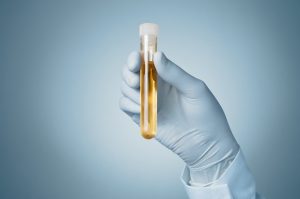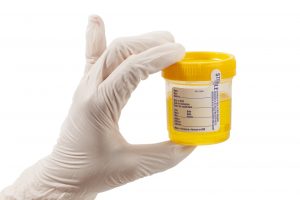Athletes and Drug Testing
The use of performance-enhancing drugs among athletes has always been a concern. Their use can be traced to the ancient Olympic Games when the pressure to succeed was just as strong as today. Drug testing is also a controversial matter. Those who ask “Should athletes be drug tested?” cite the right to privacy, due process protections, and other constitutional issues—but the analysis of urine, hair, or blood samples drawn from high school, college, and professional athletes remains a common practice.
Drug testing programs are managed in various ways. Mandatory drug testing for athletes is often required for those in interscholastic programs. Some schools require only voluntary testing or do so upon reasonable suspicion, while others use random testing as a deterrent against drug use. Professional sports organizations perform regular testing. As such, many athletes seek methods to pass drug tests (more on these later).

Why Are Athletes Required to Take Drug Tests?
Athletes in all sports consume or inject performance-enhancing drugs. Artificial stimulants are often used to increase physical and mental abilities, which provides an advantage over an opposing athlete or team. The pressure to perform and endure extensive practice and training is a motivating factor, while students must reach for their academic goals as well—many turn to banned substances to help overcome these challenges.
What Drugs Are Athletes Most Often Tested For?
A drug test may be used to determine if an athlete has consumed any number of drugs. The National Collegiate Athletic Association (NCAA) has banned alcohol, stimulants, and anabolic agents, as well as street drugs. It has also banned diuretics and other agents used to mask the presence of performance-enhancing substances.1
Drug testing for athletes is conducted by certified laboratories. In addition to volatile substances such as anabolic steroids, LSD, and Ecstasy, they may screen for:
- Amphetamines
- Barbiturates
- Cocaine
- Marijuana
- Methadone
- Opiates
- Phencyclidine
- Propoxyphene2
The NCAA may also test for a range of other stimulates, anabolic agents, beta blockers, hormones, and beta-2 agonists.

Is Drug Testing Legal?
It is legal for colleges and high schools to drug test student athletes, although drug testing policies for high school students must be managed according to respective school districts’ policies. Therefore, policies from school to school may vary. Those of colleges tend to be more uniform and follow NCAA guidelines on banned drugs and the penalties for testing positive.
The NCAA clearly lays out these penalties. Student athletes who test positive once lose a year of eligibility from competition and the right to compete for a full season. If they test positive for a performance-enhancing drug a second time, they’ll become permanently ineligible from participating.3
There have been legal challenges on the constitutionality of drug testing. So far, these legal challenges have failed, as the courts have supported mandatory testing practices. State action is permitted among public schools and colleges, while fourth, fifth, and fourteenth amendment issues do not apply to private sports leagues unless a contract is established for testing.
How Often Are NCAA Athletes Drug Tested?
A drug test may be administered at any point during an NCAA championship. Athletes may be tested more than once. Following a championship game, a drug-testing crewmember will supply a list of individuals selected for testing to an institutional representative. Student athletes are not provided with advance notice on testing.
Here are some other important athlete drug testing facts:
- The NCAA spends over $6 million annually on drug testing/education.
- No dietary supplement is approved by the NCAA.
- Per NCAA protocol, each urine sample is analyzed onsite, and:
- If it’s too dilute, a student must remain compliant until an adequate specimen is collected.
- The NCAA conducts late-night drug testing for evening team championship events.4
How Can an Athlete Pass a Drug Test?
Drug use among athletes is not uncommon. It’s been estimated up to 85% of pro-NBA and -NFL players use marijuana.5 Athletes have tried unsafe ways to beat drug tests, such as drinking bleach (which is ineffective, not to mention dangerous) and drinking massive quantities of water, which can be deadly. There are, however, safer ways to mask the presence of drugs in the body; this is especially useful since many drugs, and their byproducts, can be detected long after consumption.
For example, THC, the psychoactive ingredient in marijuana, remains in the blood anywhere from a day or two to a week—but, in hair, it can be detected for up to 90 days after the last use. In an occasional user’s urine, it is detectable for about three days to a week and up to 30 days in a more frequent user.6
This presents a problem to athletes who use marijuana days, or even weeks, before a game when they may be on a break. Drug testing isn’t only performed in the sports world. Job candidates and employees at any company may be tested, as may anyone stopped by the police. Despite ineffective and unsafe methods, there are practical options if you’re looking for how to pass a drug test.

Some of the more common ways to do this include:
- Fake urine: People have tried fake urine in various ways to pass a drug test. Clear Test offers several different types of fake urine products, which include a laboratory-made mixture with the same chemical composition as real urine. The Urinator: Synthetic Urine Container contains an electronic heater, while the Synthetic Urine Kit contains a heating pad. Synthetic pee is made with the same chemical composition as real urine.
- Urine cleansers: Special additives can destroy toxins and substances athletes may not want to show up on a drug test. Our SPIKE! Additive eliminates all toxins that can be detected with an enzyme multiplied immunoassay test (EMIT) used in most workplaces. Urine Luck is a chemical solution that works at the molecular level to make even alcohol or tobacco undetectable.
- Detox drinks: Rescue Cleanse and Quick Clear detox drinks work by holding toxins in the body for a specified amount of time. This is often enough to prevent drug byproducts from being released from the body before a drug test.
- Saliva cleansers: Product such as the One Shot Concentrate Detox Drink for Drug Tests and Dr. Greens Cool Rinse for Saliva Drug Tests cleanse the mouth so that toxins can’t be detected in saliva. Oral Clear Saliva Neutralizing Gum works on the same principle.
- Shampoo: Hair Follicle Shampoo for Drug Tests and Dr. Greens Wash Away Detox Shampoo are undetectable and last for up to eight hours. Only one application is required for hair up to shoulder length.
Clear Test Helps Pass Urine or Hair Follicle Drug Tests
The products offered by Clear Test can help beat any type of drug test currently in use. Since 1998, our business has successfully worked with tens of thousands of customers. Drug testing is used on athletes and in just about any workplace. Drug testing for athletes does not have to be stressful. If you’re searching for products and tests that will avoid a positive result, browse our catalog of effective products and order online today. For more information, call us toll-free at 800-248-5655.
Sources:
- https://www.ncaa.org/sport-science-institute/topics/frequently-asked-questions-about-drug-testing
- https://thesportjournal.org/article/student-athlete-drug-testing/
- https://education.findlaw.com/higher-education/drug-testing-student-athletes-is-it-legal.html
- https://www.ncaa.org/sport-science-institute/topics/frequently-asked-questions-about-drug-testing
- https://www.usatoday.com/story/sports/nba/2018/04/20/former-nba-nfl-athletes-estimate-marijuana-use-players-high/536254002/
- https://cleartest.com/infographic/how-long-does-thc-stay-in-your-system